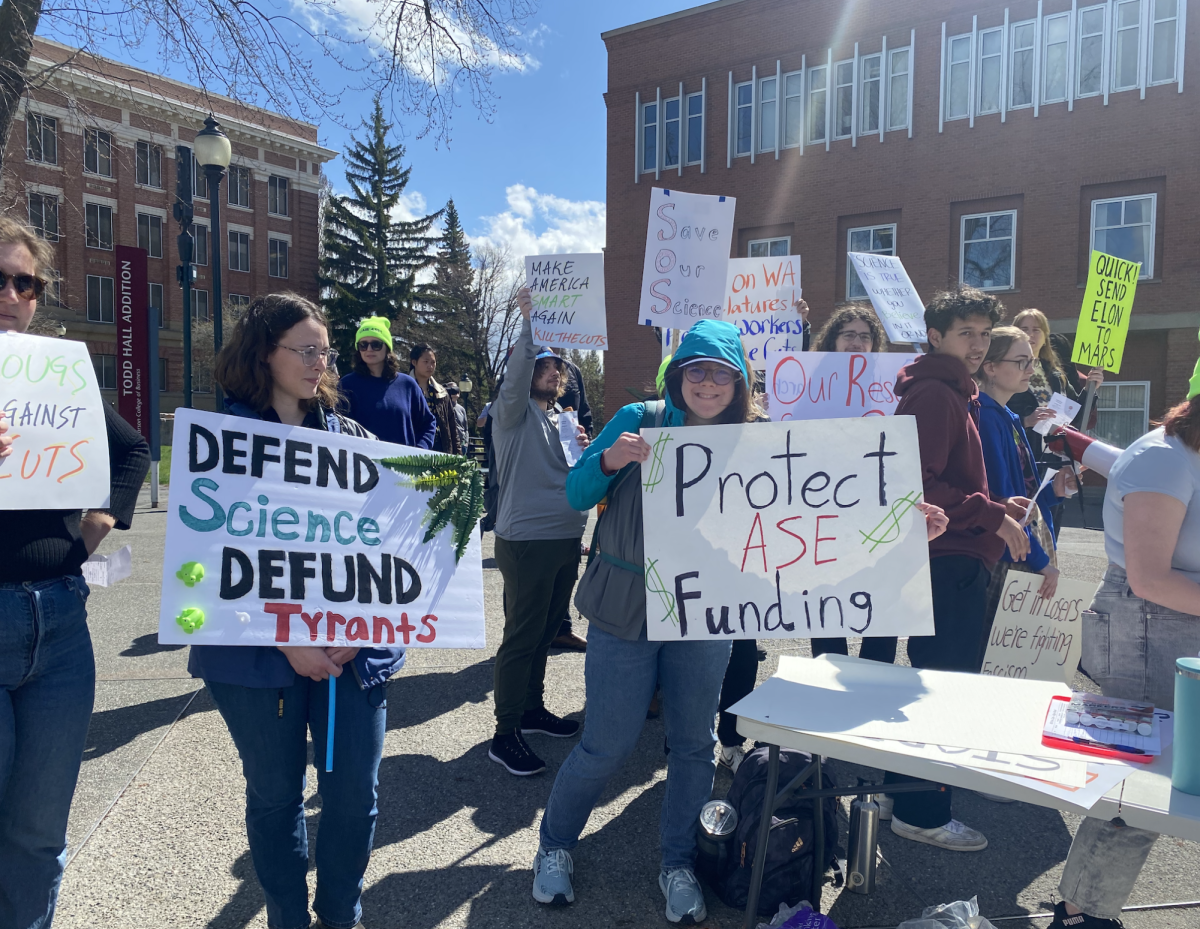Washington Attorney General Nick Brown delivered a talk at the Thomas S. Foley Institute in Bryan Hall Monday. The talk discussed several lawsuits Washington is involved in against President Donald Trump’s actions during the first weeks of his second term.
Brown said he did not envision the Attorney General’s Office spending so much time litigating against the Trump Administration. His office has been dealing with other issues, but the litigation against President Trump has received more coverage.
His office is involved in five different cases against the Trump Administration. Brown said one of those cases is a suit against Trump’s attempt to end birthright citizenship.
“Washington, alongside other states, has filed a suit against the executive order in the Western Washington District,” Brown said.
Washington is also involved in litigation against Trump’s federal funding freezes and the National Institute of Health cuts. Brown said their freezes and cuts affect universities as they impact research programs.
Brown also said his office is joining New Mexico, Arizona and Michigan to block the Department of Government Efficiency.
Washington did not join the first suit against DOGE because it was too narrow and only focused on its work in the Treasury Department, Brown said. Instead, Brown is challenging DOGE’s ability under the Appropriation Clause, which addresses concerns DOGE is overstepping its authority—an authority not granted by Congress.
A judge found the three states have a good cause but not enough to get a temporary restraining order against DOGE, he said.
Brown said his office has received complaints about DOGE, with some people expressing concerns about their privacy.
“Elon Musk does not have an official role in government and he has not been nominated for a position that would require Senate confirmation,” he said. “[DOGE] is being staffed by people without security clearance.”
Brown said his office has also brought a case challenging the president’s executive order targeting transgender healthcare.
“The president has threatened jail for practitioners and parents providing or supporting gender-affirming healthcare,” he said. “The president cannot illegally withhold funding from healthcare institutions providing healthcare to their patients.”
Before answering questions from the audience, Brown said there is a constitutional process in doing things like cutting or reducing funding for programs authorized by Congress. According to the suits his office has filed, the process is not being followed.
“As long as I am the Attorney General, my office will continue to advocate for people against anyone that will harm Washingtonian interests,” he said.
When deciding to litigate against President Trump’s actions and executive orders, the Attorney General’s Office uses certain criteria, Brown said.
First, it looks to see if the action is illegal or unconstitutional, he said. Then the office looks at whether it impacts Washington or its organizations. Finally, it looks at whether it is appropriate for Washington to be involved in litigation over the matter.








